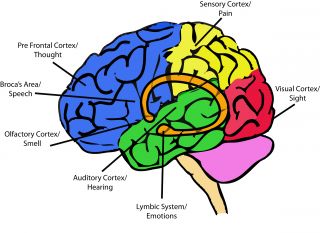Trauma
Are You a Traumatized Woman?
Women are more than twice as likely to develop PTSD as men.
Posted March 24, 2015

Recently, I was interviewed by Lisa Cypers Kamen, host of the Harvesting Happiness Radio Show. The interview airs on Wednesday, March 25 at 9 a.m. PST with podcast available immediately following the airdate.
(http://harvestinghappinesstalkradio.com, /http://www.toginet.com/shows/harvestinghappiness) Harvesting Happiness is a popular Los Angeles-based talk radio show. The interview focused on Women and Trauma and how time perspective therapy is an effective treatment for trauma. But we wandered onto other topics throughout the radio show so we’d like to share with you some additional information about this important subject:
Your brain and trauma

Traumatic experiences involve most or all of the senses—sight, hearing, smell, sometimes taste, and physical pain. Every one of these sensations are recorded and stored in various parts of the brain and may leave deep psychological scars. After experiencing a traumatic event, it’s not unusual for people to suffer from varying degrees of stress, depression, and anxiety. Nightmares, flashbacks, isolation, sleep disturbances including an inability to fall asleep; isolation and avoidance are also common indicators of post-trauma. If these symptoms no longer bother the traumatized person after a month, then they likely suffered from acute stress disorder. But if the symptoms continue or increase after a month, they are probably suffering from posttraumatic stress disorder (PTSD). PTSD can be caused by natural and human-made disasters. About 8% of US population will suffer from PTSD in their lifetime, and this number continues to increase.
Women and trauma
When we peruse the landscape of our world half the women we see have experienced a life-altering traumatic event, perhaps a natural disaster like a hurricane, tornado, flood or earthquake, or a human-made disaster such as a car accident or terrorist attack. And 1 in 3 women will experience sexual assault in their lifetime. This number is probably much higher because these are only reported cases.
As mentioned above, these traumas can leave deep psychological scars. When we have a physical wound—say a deep cut on our arm and we know we need stitches, but we decide to take care of it ourselves—we can bandage it up as best we can but we risk infection and as the wound heals, it may form a thick keloid scar. When we undergo a serious trauma it becomes a deep wound in our psyche; it’s burned into our memory. We can try to ignore it and cope as best we can but our coping techniques may not be wholesome. We may fall into unwanted, unhealthy behaviors such as drinking, drugging, and anger. Or we can assist the healing process by seeking help and learning healthy coping techniques.
As an aside, the vast majority of women I have treated for PTSD stemming from motor vehicle accidents, sudden traumatic loss of a loved one, service-related trauma, etc., reported being sexually abused at some point in their life. And a third of the men I’ve treated have also reported being sexually abused.
Why sexual assault is different
Women are more likely to experience sexual abuse and/or assault than men, and sexual abuse and/or assault is more likely to cause PTSD than many other traumatic experiences. Why? Because sexual assault is different from other types of assault such as being mugged. While sexual assault may not be “personal” to the assailant, it is nothing but “personal” to the victim. Sexual experiences are supposed to be intimate, not violent. In sexual assault or sexual abuse, something the woman has to offer in an act of intimacy is taken from her—usually with violence. It’s an unwarranted punishment that leaves permanent psychological scars.
Why women blame themselves
Women are more likely to blame themselves for a traumatic event than men. Why? It’s complicated. Partly this may be due to societal pressure—to a degree, we may have bought into the objectification of women and that comes with a whole lot of baggage. But a larger, very significant reason is likely due to hormones and the way the female brain works. The hormone is PACAP (pituitary adenylate cyclase-activating polypeptide). Joint studies conducted at Emory and University of Vermont by Kerry Ressler indicate that PACAP can change the estrogen response in traumatized women and cause them to experience symptoms associated with PTSD and these symptoms (depression, anxiety, stress, etc.) have a myriad of offshoot symptoms. So it looks like we’ve found the smoking gun as to why women suffer from PTSD more than men and why women behave differently in certain situations. Interestingly, men suffering from stress and PTSD do not produce this hormone—only women!
Misconceptions
During the radio interview I was asked about my view regarding women being considered the “weaker sex”. My response was that this is a misconception. Women are strong and resilient; but all this trauma and stress—including stressful jobs—is causing women to suffer from high blood pressure and heart attacks. (See https://www.psychologytoday.com/blog/the-time-cure/201301/womans-heart.) Historically in our society men have been taught to guard their emotions and feeling. While women, whether due to biological or social reasons or a combination, appear to be more in touch with their feelings and more likely to seek help to overcome trauma. Let’s face it, men and women are built differently and therefore respond differently; i.e., most women ask for directions when lost, most men don’t. (http://www.nytimes.com/1992/05/26/science/why-don-t-men-ask-directions-…, https://www.psychologytoday.com/blog/just-listen/201005/why-men-dont-as….)
In our time-perspective research, Zimbardo Time Perspective Inventory data indicates most men have strong present-centered hedonistic tendencies. They seek pleasure and live for the moment. Women without children also display these same tendencies. However, women with children are more future-oriented. Applied to the above, it makes sense that women are more likely to seek help. They have a need to put the past behind and move on for the good of the family.
This information should not be construed as “man-bashing”; it's simply research. But there is good news: recent indications are that men are undergoing a major shift. In young couples we are seeing men taking on more household and child rearing responsibilities, which is good for everybody, especially their children.
Choices
During difficult times we learn about ourselves—how we act and react to people and situations. And we learn about others as well. But what we forget is that we have choices. Every day we make hundreds if not thousands of choices: what to wear, how we speak and the tone of voice we will use, what to eat for breakfast, lunch or dinner. We make choices about what we think about and how we think about it. We can choose to harvest happiness or sadness and sorrow. The latter may get us some attention for a while which might make us feel good temporarily—but this attention might also be negative. And do we need more negativity in our lives? Just say “NO!”
Time Perspective Therapy (TPT)
The treatment we’ve developed, TPT, has proven to be a fast and effective way to decrease depression, anxiety, stress—the symptoms of PTSD—as well as help grief and loss, couples and family problems, situational difficulties and more. In TPT, the following symptoms are revealed to be time-related:
Depression: based on past experiences
Anxiety: anticipating negative future experiences
Stress: can be based on both past and future
All are experienced—individually or in any combination in the present
In a nutshell, here’s how TPT works:
- Replace negative thoughts of the past with past positive experiences
- Plan for and work towards a brighter and better future
- Take time to enjoy yourself in the present; find beauty, joy and laughter
- Socialize: connect with family, friends, people you work with or who have common interests
Aetas

For people seeking self-help, who want to let go of past negative experiences, move forward to a brighter future, and live a more fulfilling, stress-free life in the present, we’ve created Aetas (discoveraetas.com), a TPT app which is now available at the App Store or iTunes (https://itunes.apple.com/us/app/aetas/id954977409?mt=8).
Aetas is comprised of:
4 parts:
Informative – different time perspectives
Zimbardo Time Perspective Inventory – short form (15 question quiz)
Guided meditations – 2 minutes each
Interactive – mind relaxing/mind focusing game if more visual and tactile.
Wishing you all the best life has to offer!
Rose Sword
For more in depth information about how your life is affected by the mental time zones that you live in, please check out our books: The Time Cure at www.timecure.com and The Time Paradox at www.thetimeparadox.com.
Visit our Psychology Today blogs at www.psychologytoday.com, search Rosemary Sword, to get a fuller appreciation of how to create a more balanced time perspective in your life!
Learn how to cope with stress and anxiety; visit www.discoveraetas.com.
Take the Zimbardo Time Perspective Inventory at www.thetimeparadox.com to discover your personal time perspective.
References
http://www.emory.edu/EMORY_REPORT/stories/2011/02/research_study_stress…
http://www.ptsd.va.gov/public/pages/women-trauma-and-ptsd.asp
http://www.ptsd.ne.gov/what-is-ptsd.html
http://www.nimh.nih.gov/health/publications/post-traumatic-stress-disor…
http://www.ucsf.edu/news/2012/11/13155/gender-differences-ptsd-risk-may…




